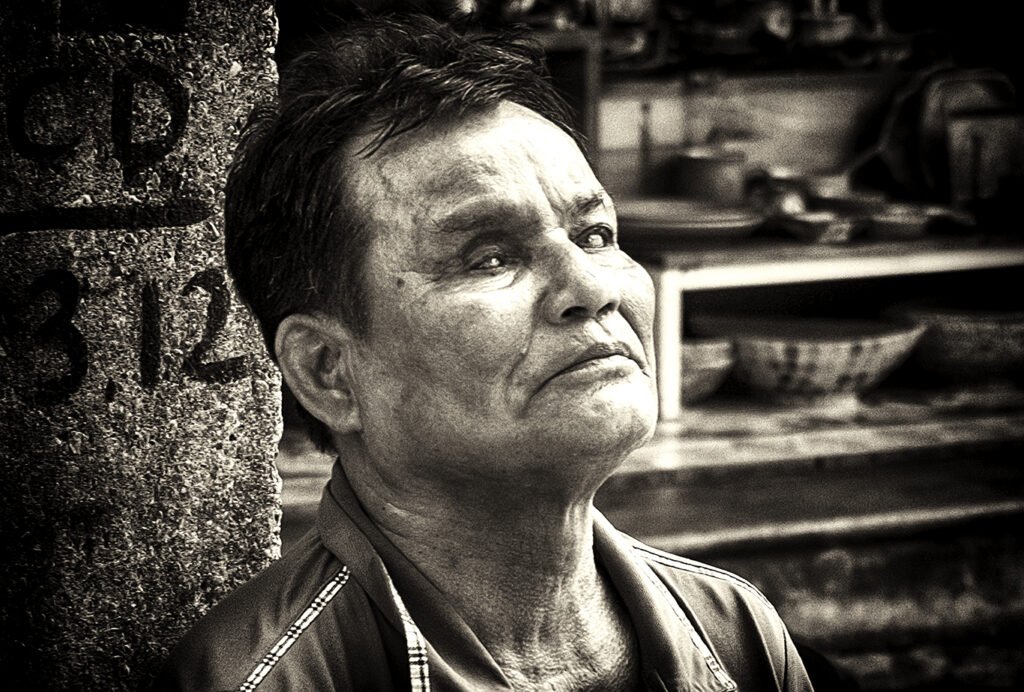
He walked with a worn wooden cane, tapping slowly along the edge of Nguyễn Duy Hiệu Street, just before the lantern stalls opened and the cyclos began to move. The city stirred around him—muffled chatter, the soft grind of coffee being poured, sandals brushing dust.
Ông Tín was blind. Not born that way—he lost his sight in his thirties, during a long illness that came after the war. Now nearly seventy, his eyes were clouded like old glass, always gazing somewhere between presence and memory.
But he knew the streets. He counted steps. Felt the texture of tiles beneath his feet. Noted smells like landmarks: the peppery warmth of bánh mì thịt at the corner stand, the rich perfume of incense near the river pagoda, the metallic sting of rain about to fall. Some days, he sold lottery tickets. Some days, he played a battered đàn nguyệt (moon lute) near the bridge, voice soft and cracked, barely louder than the river. People knew him—locals, at least.
“Chào chú Tín,” they’d say, pressing small bills into his palm.
He’d smile, nod. “Cảm ơn con. Trời đẹp ha?”
Yes, Uncle Tín. Beautiful sky today.
He didn’t need to see it to know. He sat later in the shade of a crumbling yellow wall, sipping chè xanh from a chipped cup, the cane resting across his lap. Around him: the hum of scooters, a baby’s cry, the far-off snap of someone lighting incense. And in his stillness, he felt the shape of Hội An—not through light, but through sound, warmth, rhythm. To him, the old town was not a picture.
It was a pulse.
A memory of footsteps on stone.
A kindness placed gently into his hand.
And the breath of the river
as it passed,
unseen,
but always known.